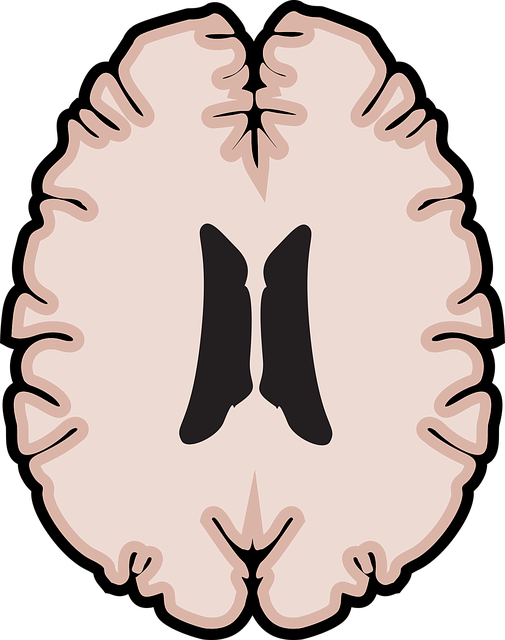Transpersonal psychotherapy offers a holistic approach to mental health by exploring the connection between individuals, their psyche, and spiritual realm. It goes beyond traditional talk therapy through techniques like meditation, mindfulness, and value exploration to unlock hidden potential and facilitate personal growth. This method emphasizes consciousness expansion, self-discovery, and spiritual connections in a safe, supportive environment. By integrating spiritual insights into daily life, it enhances well-being and promotes profound mental health improvements. However, it presents challenges related to professional boundaries and ethical considerations, requiring careful navigation and supervision. Research supports its effectiveness for treating depression, anxiety, and stress, making it a promising complementary or alternative treatment alongside traditional therapies. Accessing qualified transpersonal psychotherapists involves searching for licensed specialists with relevant training and exploring online sessions for increased accessibility.
Transpersonal psychotherapy offers a profound, holistic approach to mental health, exploring the connection between personal consciousness and universal experiences. This unique therapy delves into spiritual aspects of human existence, aiming to facilitate healing, growth, and personal transformation. Understanding transpersonal psychotherapy involves grasping key principles, the role of consciousness expansion, various techniques used in sessions, and its numerous benefits. We’ll also explore the integration of spirituality and psychology, ethical considerations, research support, and how to find qualified practitioners for this transformative journey towards well-being.
Understanding Transpersonal Psychotherapy: A Holistic Approach to Mental Health

Transpersonal psychotherapy is a holistic approach to mental health that goes beyond traditional psychoanalytic and behavioral models. It emphasizes the interconnectedness between the individual, their psyche, and the broader spiritual or transpersonal realm. This therapeutic framework recognizes that human experience extends far beyond personal issues, delving into the exploration of consciousness, spirituality, and peak experiences. By integrating these aspects, transpersonal psychotherapy aims to facilitate profound personal growth, enhanced self-awareness, and a deeper sense of well-being.
This approach encourages clients to consider their mental health within a broader context, often incorporating mindfulness practices, meditation, and exploration of one’s values and purpose in life. Therapists trained in this method help individuals uncover and integrate aspects of themselves that may be disconnected or suppressed, fostering a more balanced and fulfilling existence. It’s about understanding the whole person—mind, body, and spirit—to achieve lasting improvements in mental health and overall quality of life.
Key Principles and Concepts in Transpersonal Practice

Transpersonal psychotherapy is a unique approach that goes beyond traditional talk therapy, delving into the exploration of consciousness and spiritual dimensions. This form of psychotherapy emphasizes the interconnectedness of mind, body, and spirit, aiming to facilitate personal growth and healing. The key principles focus on expanding one’s awareness and understanding of self, often involving the examination of past experiences and unconscious processes. By encouraging clients to look within, transpersonal practice seeks to unlock deeper insights and unlock hidden potential, fostering a sense of wholeness and well-being.
In this innovative approach, therapists create a safe and supportive environment, allowing individuals to explore their inner worlds and spiritual connections. The concept of transpersonal experience is central, referring to altered states of consciousness that can lead to profound personal transformations. These experiences may include mystical moments, insights into one’s true nature, or feelings of oneness with the universe. Through various techniques, such as meditation, imagery, and dream analysis, clients are guided to integrate these spiritual dimensions into their everyday lives, ultimately enhancing their mental health and overall psychotherapy journey.
The Role of Consciousness Expansion in Healing and Growth

In transpersonal psychotherapy, consciousness expansion plays a pivotal role in fostering healing and personal growth. This therapeutic approach recognizes that expanding one’s consciousness can lead to profound insights and transformative experiences, enabling individuals to explore their inner selves at deeper levels. By encouraging clients to transcend their limited perspectives, therapists help them access higher states of awareness, where hidden patterns, beliefs, and emotions may surface, facilitating self-discovery and healing.
The process involves various techniques such as meditation, mindfulness practices, and guided imagery, which allow individuals to step outside their everyday mental health psychotherapy frameworks. This shift in consciousness can open up new avenues for understanding, helping clients gain clarity on complex issues and making meaningful changes in their lives. Through consciousness expansion, individuals may experience a heightened sense of connection with themselves, others, and the world around them, fostering overall well-being and personal growth.
Techniques Used in Transpersonal Therapy Sessions

In transpersonal psychotherapy sessions, therapists employ a range of unique techniques designed to help clients explore their consciousness and achieve profound personal growth. One key approach is mental health psychotherapy that transcends traditional boundaries by integrating spiritual and mystical experiences into treatment. Therapists create a safe, supportive environment where clients can freely express their thoughts, feelings, and even out-of-body experiences without judgment.
These sessions often involve guided meditations, mindfulness exercises, and the exploration of dreams to access deeper layers of the mind. Transpersonal therapists may also utilize visualizations, music therapy, and movement practices to facilitate a sense of connection between the client’s individual self and a larger universal consciousness. By combining traditional psychotherapeutic methods with these alternative techniques, transpersonal psychotherapy aims to offer clients a holistic approach to healing and self-discovery, addressing both mental health and spiritual well-being.
Benefits for Clients: Enhancing Well-being and Personal Transformation

Transpersonal psychotherapy offers clients a unique and powerful approach to enhancing their mental health and overall well-being. By exploring consciousness beyond the ego, individuals can uncover deep sources of personal growth and transformation. This form of therapy facilitates a journey into the self, enabling clients to connect with their innermost desires, values, and life purpose. As a result, clients often experience increased self-awareness, improved emotional regulation, and a heightened sense of meaning and fulfillment.
The benefits extend beyond individual improvement; transpersonal psychotherapy can foster profound changes in one’s perspective on life. It encourages individuals to embrace a more expansive view of themselves and their place in the world, leading to enhanced relationships and a deeper connection with others. This holistic approach to mental health psychotherapy empowers clients to navigate life’s challenges with greater resilience, flexibility, and an increased sense of inner peace.
Integrating Spirituality and Psychology: A Delicate Balance

In the realm of mental health psychotherapy, Transpersonal psychotherapy emerges as a unique approach that bridges the gap between spirituality and psychology. This integrative therapy delves into the transcendent aspects of human experience, acknowledging that spiritual dimensions can significantly impact an individual’s psychological well-being. By embracing this delicate balance, therapists create a safe space for clients to explore their inner worlds, uncover hidden resources, and cultivate a deeper sense of self.
The integration of spirituality in psychotherapy requires a nuanced understanding and respect for diverse belief systems. Therapists who adopt this approach learn to listen beyond the words, recognizing the profound influence of spiritual practices, mystical experiences, and inherent interconnectedness on clients’ lives. This sensitivity fosters an environment where individuals can openly discuss their spiritual journeys, leading to transformative insights and improved mental health outcomes.
Challenges and Ethical Considerations in This Therapeutic Framework

Transpersonal psychotherapy, while offering a unique and profound approach to mental health and psychotherapy, comes with its share of challenges and ethical considerations. One primary concern is the potential for boundary blurring between therapist and client, especially as this form of therapy delves into deeply personal and spiritual realms. Therapists must remain vigilant to maintain professional boundaries while respecting clients’ autonomy and ensuring their safety.
Additionally, transpersonal psychotherapy may challenge traditional ethical guidelines due to its exploration of alternative states of consciousness and spiritual beliefs. It’s crucial for therapists to be open-minded and non-judgmental while also adhering to strict ethical standards that protect both the therapist and client. Robust supervision and ongoing training are essential to navigate these complex issues effectively in order to provide the best care possible.
Research and Evidence Supporting Transpersonal Psychotherapy

Transpersonal psychotherapy, a branch of therapy that explores spiritual and transcendent aspects of human experience, has gained attention for its potential benefits in enhancing mental health and well-being. Research in this field suggests that transpersonal approaches can be effective in treating various mental health conditions. Studies have shown that this type of psychotherapy can improve symptoms of depression, anxiety, and stress by promoting self-exploration, increased consciousness, and a sense of connectedness to something larger than oneself.
Evidence supporting transpersonal psychotherapy comes from both empirical research and clinical observations. Many studies have demonstrated its ability to foster profound personal growth, enhance spiritual well-being, and improve overall life satisfaction. The unique focus on transcendent experiences and the exploration of the self beyond the ego can lead to lasting positive changes in individuals’ mental health. This evidence underscores the potential value of transpersonal psychotherapy as a complementary or alternative approach alongside traditional mental health treatments.
Finding Qualified Practitioners and Accessing These Services

Finding qualified transpersonal psychotherapists is essential for those seeking this unique approach to mental health care. Many professionals in this field hold advanced degrees and certifications, specializing in integrating spiritual practices into psychotherapy. To access these services, individuals can start by searching for licensed therapists who have received specific training in transpersonal psychology or consciousness-based therapies. Online directories and referrals from trusted healthcare providers are excellent resources for identifying practitioners in one’s area.
Support groups and community centers focused on mental health and spirituality can also be a source of recommendations. Additionally, many transpersonal therapy practices offer online sessions, making it possible to access these services remotely, especially beneficial for those living in rural areas or with limited mobility. With the growing recognition of mental health psychotherapy, ensuring accessibility and availability is crucial to help individuals discover the benefits of transpersonal healing.
